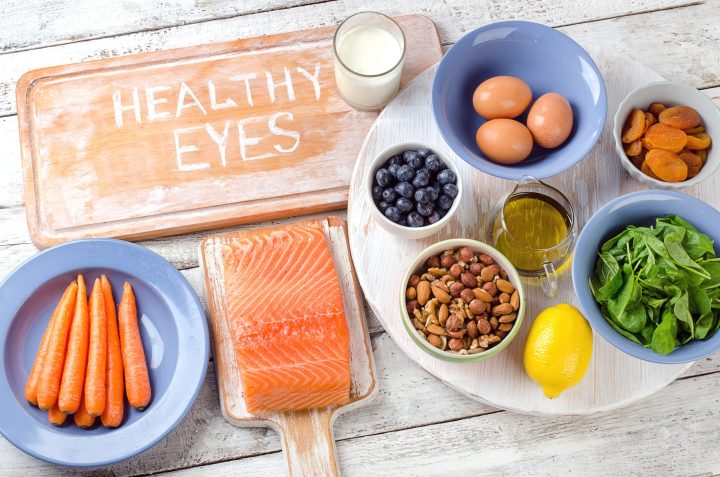Nutrition plays a critical role not only in overall health but also in the maintenance and prevention of eye disorders. The eye, as a metabolically active and sensitive organ, requires specific micronutrients to support visual function and protect against degenerative and inflammatory conditions. Key nutrients essential for ocular health include vitamin A (for rhodopsin synthesis), B-complex vitamins (neuroprotection), antioxidants such as vitamins C and E (lens and vascular protection), vitamin D (immunomodulation), zinc (vitamin A transport and antioxidant defense), omega-3 fatty acids (retinal function and anti-inflammatory action), and carotenoids like lutein and zeaxanthin (macular protection).
Oxidative stress significantly impacts ocular tissues due to their high metabolic demand, contributing to conditions such as age-related macular degeneration (AMD), cataract, and glaucoma. A diet rich in fruits, vegetables, and extra virgin olive oil provides antioxidant support to mitigate such effects. Inadequate dietary habits, processed food consumption, smoking, alcohol intake, and nutrient deficiencies (e.g., B12, D, omega-3s) further increase the risk for eye diseases.
Evidence supports the use of specific dietary supplements, particularly in populations with limited nutrient intake, elderly individuals, patients with chronic diseases (e.g., diabetes), and those under high oxidative stress (e.g., excessive screen use). However, supplementation should be evidence-based and medically supervised, as overuse may lead to adverse effects or drug interactions. Notably, the placebo effect may also contribute to perceived benefits in symptom relief. The Mediterranean Diet, rich in plant-based foods, healthy fats, and low in processed products, aligns well with eye health preservation and systemic disease prevention. Ultimately, a balanced diet grounded in whole foods remains the cornerstone of visual health, offering a safe, sustainable strategy against ocular degeneration and supporting overall physiological well-being. Supplements may be useful adjuncts but are not substitutes for healthy dietary patterns.


